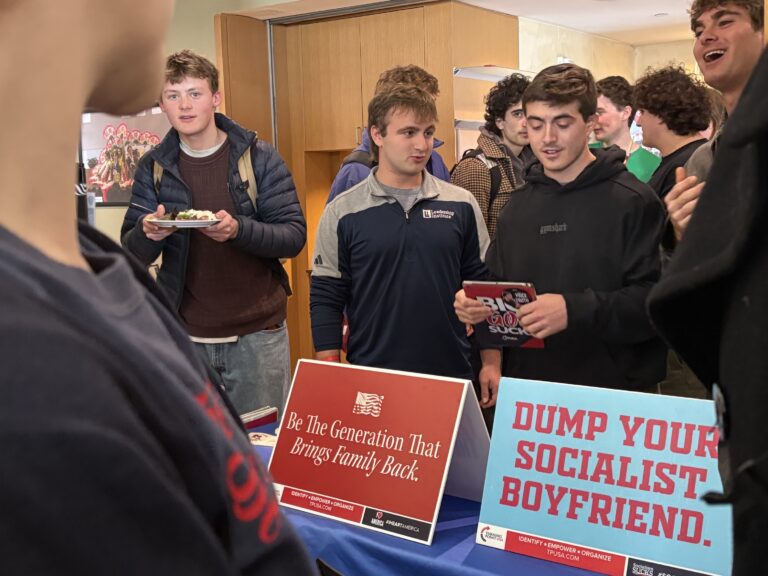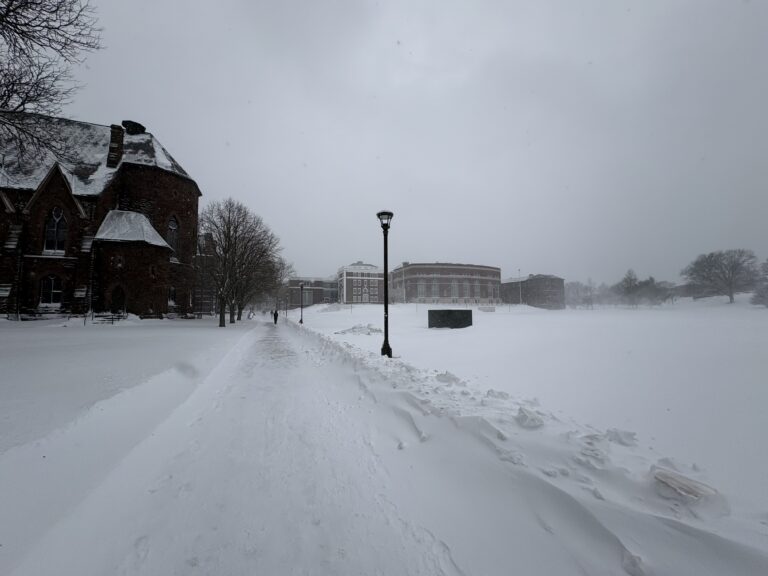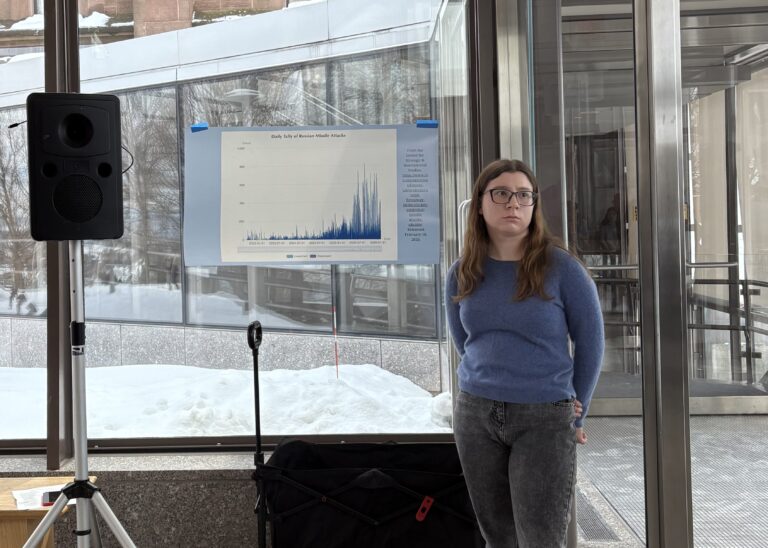NY Times correspondent in Iraq discusses experience as hostage
More parents than students packed the CFA Cinema on Saturday afternoon to listen to Jeffrey Gettleman speak about his experiences covering Iraq for the New York Times. Having only recently returned from Fallujah, Gettleman managed to keep the audience in suspense by opening his speech with the story of his worst moment as a reporter— the day he was kidnapped by insurgents on his way from Baghdad to the city of Ramadi on April 7.
Soon after happening upon an oasis of rice fields and green palm trees, Gettleman’s car was suddenly cut off by a van speeding out of nowhere. As his car came to a stop, he found himself surrounded by men in black masks, pointing machine-guns and R.P.G.s at the car, and angrily motioning for him to get out.
“One moment we were traveling through this incredible, unexpected beauty, and literally the next moment I was suddenly surrounded by total danger,” Gettleman said. “This was just one week after the massacre [of aid workers] in Fallujah, and the hatred towards the occupation was deep and visceral.”
Rather than continue with the story of his escape, however, Gettleman chose to pause at the height of anticipation and give the audience a little background of how he had managed to achieve his position with the Times.
Having graduated from Cornell with a degree in philosophy, Gettleman won the Marshall Scholarship, which allowed him to achieve a master’s degree in social anthropology at Oxford. Returning to the States, he managed to get his start in journalism by taking a position with a small paper in Wisconsin that he says was the most difficult job to get.
“I still maintain that it was harder to get my foot in the door in Wisconsin than it was to get a job at The New York Times,” he said.
From there, Gettleman managed to land a position with The St. Petersburg Times in Florida, a larger market than Wisconsin, and one that afforded him the opportunity to cover such diverse stories as a woman being arrested for mowing her lawn topless, and a crab fisherman suspected of kidnapping and murdering a seven-year old girl. The latter story proved particularly interesting, for it was in an interview with Gettleman that the fisherman, then only a suspect and not yet arrested, accidentally admitted to his crime.
Eventually arriving at the Times, Gettleman was initially sent to cover Egypt, Yemen and Afghanistan. In February of 2003, he was embedded for two months in Iraq. He returned to the country in January of 2004.
This was a unique moment in the country’s history, according to Gettleman, as it fell between the end of the invasion and the beginning of the uprising and there was a real sense of hope that the occupation would be a success. All of that changed with the massacre at Fallujah, and Gettleman suddenly found himself hostage to an angry group looking to shed American blood.
Finally returning to the story of his escape nearly twenty minutes later, Gettleman recalled that as he stepped from his escort, he was sure that his life was over.
“I felt that life was cheap, and I wasn’t exempt,” he said. “I was expecting to be shot immediately, and I wasn’t scared; I had gone beyond that point and I had lost all control. I was just hoping it wouldn’t hurt.”
Luckily, Gettleman had hidden his passport down the pants of his female photographer who had also been abducted, rightly believing that this was the only place that wouldn’t get searched. Telling his interrogators that he was Greek, Gettleman was nonetheless subjected to an entire day’s worth of questioning at gunpoint in which he was accused over and over of being an American, a spy or both. The fact that he was with a woman diffused the situation, and the climactic moment came when one of his interrogators offered him a bowl of water.
“At that point, I knew I was going to be okay, because the gesture was one of hospitality,” he said.
Gettleman was released around five p.m., and returned to Baghdad, where his colleagues celebrated his safety. Still, the intrepid reporter is considering one more trip to the beleaguered country to cover the elections tentatively scheduled for January. Upon hearing this, the audience let out a collective groan of disbelief, and many parents could be seen shaking their heads.
The University’s Jewish and Israel Studies Certificate Program sponsored Gettleman, who has also appeared on CNN, PBS, NPR and ABC as a commentator on Iraq.
“The man is amazing,” said Sam Carlson ’05 after the lecture. “Having first-hand knowledge like that about events our children will study in history textbooks is something I can’t quite comprehend.”







Leave a Reply